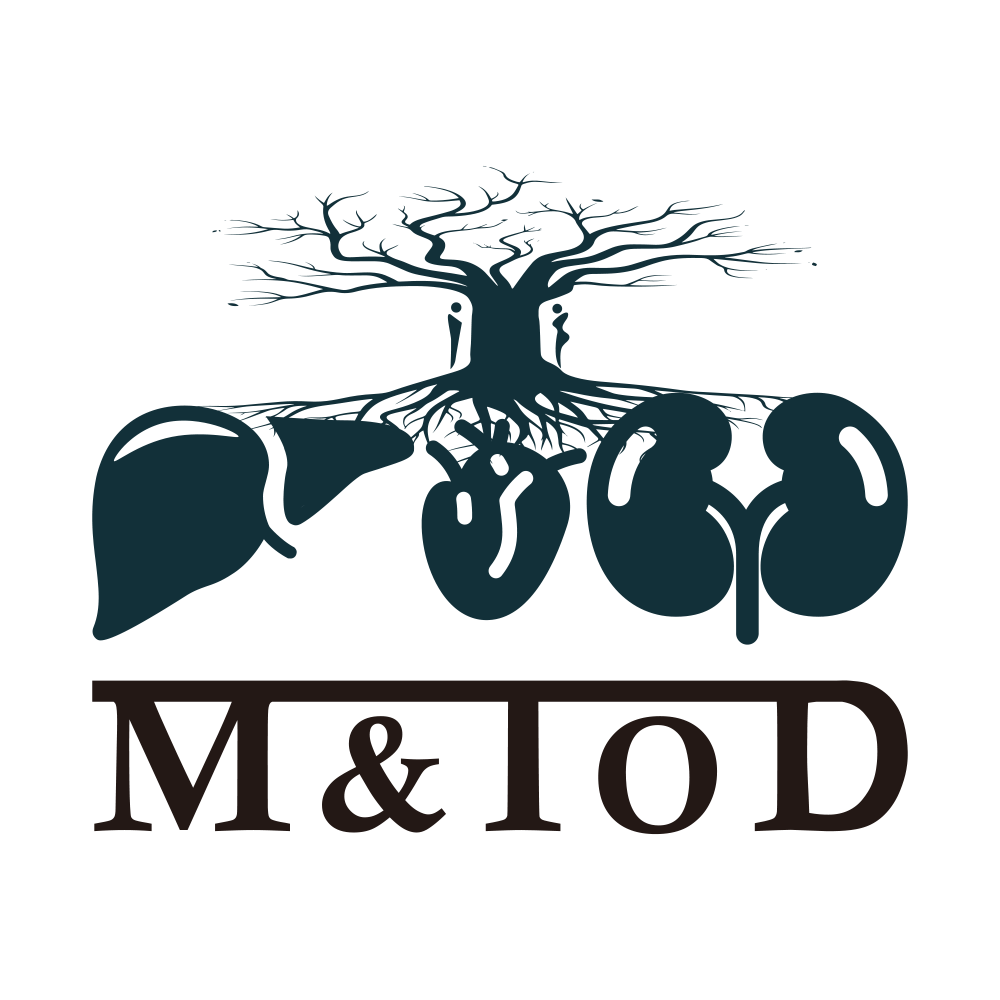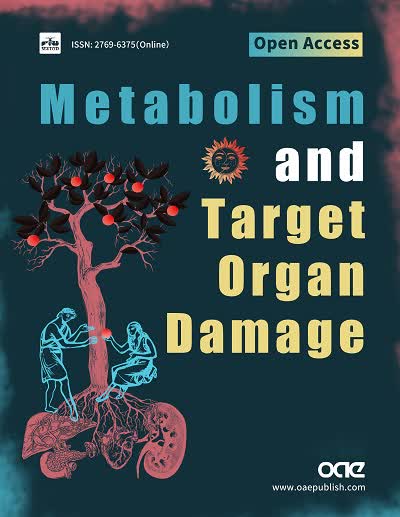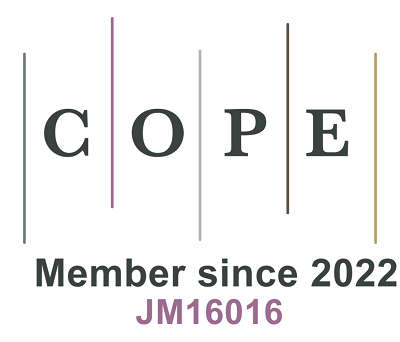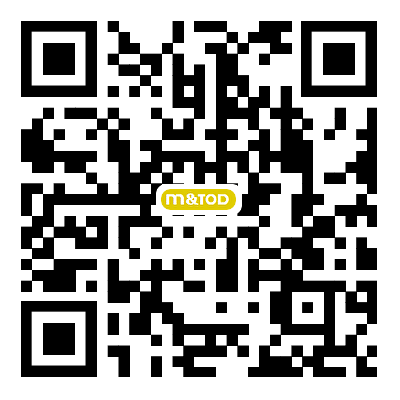Could controversies in the arena of fatty liver disease be a potential gate for the democratization of science?
Abstract
The term “democratization of science” describes the process of more evenly allocating epistemic authority between scientists, members of dominant civilizations, and the academic community at large, or members of less dominant societies. This means that it includes initiatives aimed at democratizing the decision-making process by acknowledging the presence of diverse types of “wisdom of crowd” and so reducing the barriers between the various stakeholders. Our purpose is to separate influence from involvement that contributes to the breakdown of conventional closed-circuit authority structures and to prevent future abuses of power by academic institutions, scientific societies, and even individual opinion leaders. A conceptual framework for comprehending the idea of the democratization of science is presented in this perspective piece. Our considerations are pertinent to the politics of widespread academic engagement in scientific decision-making, even though they were spurred by the discussion surrounding the definitions of fatty liver disease.
Keywords
INTRODUCTION
For years, if not centuries, the word “consensus” has been employed in a wide range of situations and fields. It usually addresses different contentious circumstances in an effort to come to a consensus[1].
However, in science, reaching an agreement is more than just tallying heads, and decisions made by consensus cannot be mocked for requiring absurdities like voting on the veracity or untruth of claims that have previously been supported by evidence[1].
The undeniable fact is that everyone has an opinion, and there are millions of them out there and “expert” opinion seems superfluous when evidence exists[2]. Therefore, scientific consensus consists of cooperation and synthesis of evidence in contrast to other settings, which are based on competition and the gathering of opinions.
In such a way, it appears quite obvious, in many scholars’ opinion, that the debatable process undertaken by the American Association for the Study of Liver Diseases (AASLD) and the European Association for the Study of the Liver (EASL) to reach a consensus regarding the nomenclatures of fatty liver disease invalidates its premises and, in a sense, the outcome seems predetermined, if not self-fulfilling. The details of the limitations and controversies of this flawed process have been extensively analyzed in recent viewpoints and are outside the scope of the present perspective article[3,4]. Instead, the discussion in this process should have moved forward toward deliberation of the scientific methodology and findings, rather than engaging in a long and complex process aimed at bounding controversy through opinions.
These biases and limitations within the various aspects of this workflow have undoubtedly carried important implications in real-world practice[3]. The inspiring principle should be that all those who are eventually affected by any given decision should have a say. What has to be avoided is that expert scholars in the field and other scientific societies have limited access to influence outcomes of common interest. The biggest criticism of this process is that it seemingly assumes “intellectual supremacy” and leaves no consideration for any evidence-based alternative views. This is particularly true, considering that the decision procedure has been used not as a simple suggestion but as a rigid cornerstone for future publications in certain authoritative medical journals[5].
Additionally, specific prudence should be exercised when dealing with concepts such as stigma and stigmatization, as these are typically subject to tremendous inter-cultural variations. While there is a universal agreement on the stigma related to the word “alcoholic” in the term “non-alcoholic”[6], the same adjective (e.g., fatty) that is deemed to be stigmatizing in a given culture may conversely be positively evaluated in others[7] and has been shown to have the same translation as steatotic in virtually all non-Latin languages spoken by more than 5 billion people worldwide[8].
As similar debates have occurred in the past and will likely recur in the future, the potential unplanned positive consequence of this debate over the redefinition of fatty liver disease[9-12] is that it can represent a unique opportunity for democratization of science, thereby mitigating the risk of future power misuse.
This notion is exactly what has inspired our appraisal, and this perspective article presents a conceptual framework for understanding the concept of democratization of science. While triggered in the context of the controversy over the redefinition of fatty liver disease, the most prevalent liver disease that affects more than a third of the global population[13], our conclusions likewise hold true for the far more expansive field of politics surrounding ordinary academic participation in scientific decision-making. Our purpose is to disaggregate influence from participation pushing toward the erosion of traditional forms of a closed-circuit authority and to contain future inappropriate utilization of power by scientific societies, large academic organizations, or even individual opinion makers. Implementing such a tremendous cultural change in medicine requires re-imagining of the traditional dynamics of power between a restricted number of professionals controlling the scientific societies and the general community of global stakeholders - in short, it requests a democratization of science.
WHAT IS DEMOCRATIZATION OF SCIENCE?
The term “democratization of science” describes the process of more evenly allocating epistemic authority between scientists, members of dominant cultures, and the academic community at large, or members of less powerful societies[14]. This means that it includes initiatives aimed at democratizing the decision-making process by acknowledging the presence of diverse types of “wisdom of crowd” and so reducing the barriers between the various stakeholders[15].
Accordingly, the democratization of science refers to (A) the increase in the general academics’ influence over various aspects of decision making; and (B) the equalization of the opportunity for influence among members of the various scientific societies; coupled with (C) an increased ability of members of the general academic to form an accurate conception of what would better serve their regions without the imposition of views via a “top-down” approach.
The goal of the democratization of science is to reduce the abuse of power by tiny noisy groups or social boards and to expand the purview of democratic governance to include choices about science. A domain of actual consensus, in the event of future dispute or debate, is democratically controlled when all pertinent stakeholders, including members of marginalized societies, have an equal opportunity to influence it based on fairness and transparency.
WHY DEMOCRATIZE SCIENCE?
The consensus process based on the “top-down” approach could have a deep and often unavoidable impact on the whole academic community, rather than just specific groups or individuals[3]. This controlling entity should adopt a broader, more global perspective. Additionally, their views might be confounded by various types of conflicts of interest, given that their decisions will affect a wide gamut of interests and activities.
It is a persuasive argument that all interested parties, not just a small number of professionals, ought to be permitted to take part in discussions on scientific subjects, particularly when those topics directly affect them. They cannot maintain and validate their leadership unless the global academic community has the ability to impact research. Therefore, everyone impacted by a choice should have a say in its governance, particularly when the outcome affects regional interests or is related to shared health concerns.
By better utilizing information scattered across different locations, the democratization of research also enhances the adoption of process outcomes[6,16-20]. First, it accomplishes this by promoting dialogues that aid in recognizing and articulating global needs and viewpoints. It also permits democratic deliberation, which may result in adjustments and alignments in these value judgments. Secondly, in comparison with
“Transformative criticism” of epistemic practices and aspirations can also come from global engagement in decision-making, particularly from the participation of so-called marginalized groups. This can assist in determining if disagreements between parties are legitimate or the result of competing interests in contentious situations, such as the ongoing discussion about the redefinition of fatty liver disease. Democratic control over the consensus-building process can increase the outcome’s credibility for widespread adoption[16]. Collective wisdom models frequently make the explicit assumption that
Ultimately, it can bolster the decision’s legitimacy and moral authority. Put another way, deciding what is equitable for all parties involved requires democratizing the decision-making process. The fairest solutions typically come from conversations that allow all parties to have a voice in a well-organized process; these conversations are typically related to the larger question of legitimacy in a democratic, tolerant, international, and inclusive setting.
HISTORY REPEATS ITSELF: LESSONS CAN BE LEARNED FROM HISTORY TO FUTURE
Initially, it appeared that the debate and reluctance to modify the criteria of fatty liver disease was a recurrence of a well-known pattern in medical history, where doctors have historically opposed the increasing impact of data[21]. The advent of randomized clinical trials (RCTs) began as a medical reform movement spearheaded by physicians horrified by the detrimental effects of senior physician ego wars and conflicts across therapeutic schools of thought on patients, particularly the more vulnerable. Resistance and attempts to stall the introduction of RCTs were encountered by this movement as well. Opinion leaders asserted that this movement was the product of a collaboration between statisticians and methodologists employed by the pharmaceutical industry[21]. RCTs and statistics are becoming commonplace in medical research and practice.
The so-called “gastric ulcer war” is another glaring illustration. The clinical status quo persisted until 1994 due to the United States' Gastroenterology establishment’s strong rejection of Helicobacter pylori's harmful role, which was originally discovered in the early 1980s. Notably, those regarded as the authorities on peptic ulcer illness at the time later characterized this reluctance as the result of cognitive dissonance. Interestingly, a large number of individuals also affected policy at the National Institutes of Health (NIH) and held prominent positions at the American Gastroenterology Association (AGA), driven by challenges to their cosy alliance with the interests of pharmaceutical companies, or the so-called "acid mafia", and their ongoing NIH grants[22].
Another example that history repeats itself occurred with one of the most successful examples of correction of nomenclature of one liver disease. The argument made at the time was that the term “primary biliary cholangitis” would cause confusion in clinical practice with other immune-mediated cholangitis types, such as primary sclerosing cholangitis, and that it would be preferable to maintain the status quo by not changing the definition of “primary biliary cirrhosis”. As a broad term for an inflammatory illness of the intra- and/or extra-hepatic bile ducts, “cholangitis” is ambiguous. Remarkably, only roughly 55%-60% of those involved in the decision-making process supported the switch from “primary biliary cirrhosis” to “primary biliary cholangitis[23]”.
Based on lessons of history, and as a reflection on the current controversy on fatty liver disease redefinition, how can we ensure that the arguments of those fighting to keep the status quo do not duplicate the same dynamics that occurred with Helicobacter pylori in the past? Therefore, democratizing science and avoiding the concentration of power in the hands of a small group, regardless of their contribution to the field, is the way to protect the advancement of science, exactly as the principles of democracy vs dictatorship in politics. Highlighting this issue, Professor Angeli, the Editor-in-Chief of Journal of Hepatology, published an editorial[24] accompanying a letter where various investigators called for more flexible editorial conducts, facilitating comparative studies rather than enforcing the adoption of the novel metabolic
However, looking back at the past serves as a timely reminder to everybody in the profession that, far too frequently, scientific advancement needs to be battled for, and that the scientific establishment is also biased toward conservatism. From this angle, it was very good news that the battleground has now been extended to the entire academic community. It requires a great deal of “linguistification” effort to make “evidence” appear to be “facts that speak for themselves”, as was recently stated[21].
CONCLUSION
Within the sphere of argumentation, it is customary to stress the concept of “democratization of science”, which implies broad general academic participation in the decision-making process in the face of controversial issues. Without this, there would naturally be an imbalance in any arrangement to integrate societies’ actors meaningfully into the decision-making process, no matter who coordinated it. The danger is that what seemingly is declared as a broad consensus on the nature of science is actually a forced consensus.
Such arguments seek to increase participation and arguments for the democratization of planning, usually connected with the broader issue of legitimacy in a democratic environment. If the history of science teaches anything, it is humility, cautioning against the concentration of authority in the hands of a small number of people, as by default, such concentration would lead to biases, especially in today’s world, which is rife with various conflicts of interest. Nevertheless, our grandchildren will surely blame us if they find that we understood the reality of the misuse of power and failed to do anything about it. It is time to restore the balance and take control of our field: together, we can do it!
DECLARATIONS
Authors’ contributions
Conceptualization, Writing-original draft preparation: Fouad Y, Alboraie M
Writing-review and editing: Fouad Y, Gomaa A, Zheng M, Alboraie M
Revised and approved the published version of the manuscript: Lonardo A, Fouad Y, Gomaa A, Zheng M, Alboraie M
Availability of data and materials
Not applicable.
Ethical approval and consent to participate
Not applicable.
Financial support and sponsorship
None.
Conflict of interest
Amedeo Lonardo is the Editor-in-Chief of the journal Metabolism and Target Organ Damage. The other authors declare that there are no conflicts of interest.
Consent for publication
Not applicable.
Copyright
© The Author(s) 2024.
REFERENCES
1. Fouad Y, Dufour JF, Zheng MH, et al. The NAFLD-MAFLD debate: is there a consensus-on-consensus methodology? Liver Int 2022;42:742-8.
2. Fouad Y, Elwakil R, Elsahhar M, et al. The NAFLD-MAFLD debate: eminence vs evidence. Liver Int 2021;41:255-60.
3. Méndez-Sánchez N, Zheng MH, Kawaguchi T, Sarin SK. Editorial: the metabolic (dysfunction) associated fatty liver disease (MAFLD)-non-alcoholic fatty liver disease (NAFLD) debate: a forced consensus and the risk of a world divide. Med Sci Monit 2022;28:e938080.
4. Fouad YM, Gomaa A, El Etreby RM, AbdAllah M, Attia D. Editorial: the metabolic (dysfunction)-associated fatty liver disease (MAFLD) and non-alcoholic fatty liver disease (NAFLD) debate: why the american association for the study of liver diseases (AASLD) and European association for the study of the liver (EASL) consensus process is not representative. Med Sci Monit 2022;28:e938066.
5. Malhi H, Brown RS Jr, Lim JK, et al. Precipitous changes in nomenclature and definitions-NAFLD becomes SLD: Implications for and expectations of AASLD journals. Liver Transpl 2023;29:1262-3.
6. Shiha G, Korenjak M, Eskridge W, et al. Redefining fatty liver disease: an international patient perspective. Lancet Gastroenterol Hepatol 2021;6:73-9.
7. Sanal MG. Is the change from NAFLD to MASLD driven by political correctness? J Hepatol 2024;80:e74-6.
8. Alboraie M, Fouad Y, Eslam M. Letter to the editor: MAFLD versus MASLD-which is more appropriate from a global perspective? Hepatology 2024;Online ahead of print.
9. Eslam M, Alkhouri N, Vajro P, et al. Defining paediatric metabolic (dysfunction)-associated fatty liver disease: an international expert consensus statement. Lancet Gastroenterol Hepatol 2021;6:864-73.
10. Eslam M, Newsome PN, Sarin SK, et al. A new definition for metabolic dysfunction-associated fatty liver disease: an international expert consensus statement. J Hepatol 2020;73:202-9.
11. Eslam M, Sanyal AJ, George J. International Consensus Panel. MAFLD: a consensus-driven proposed nomenclature for metabolic associated fatty liver disease. Gastroenterology 2020;158:1999-2014.e1.
12. Eslam M, Sarin SK, Wong VW, et al. The Asian Pacific association for the study of the liver clinical practice guidelines for the diagnosis and management of metabolic associated fatty liver disease. Hepatol Int 2020;14:889-919.
13. Eslam M, El-Serag HB, Francque S, et al. Metabolic (dysfunction)-associated fatty liver disease in individuals of normal weight. Nat Rev Gastroenterol Hepatol 2022;19:638-51.
14. Kurtulmuş F. The democratization of science. Global Epistemologies and Philosophies of Science. London: Routledge; 2021. pp. 145-54.
15. Carolan MS. Science, expertise, and the democratization of the decision-making process. Soc Natur Resour 2006;19:661-8.
16. Méndez-Sánchez N, Bugianesi E, Gish RG, et al. Global multi-stakeholder consensus on the redefinition of fatty liver disease. Global multi-stakeholder endorsement of the MAFLD definition. Lancet Gastroenterol Hepatol 2022;7:388-90.
17. Méndez-Sánchez N, Maris-Gil S, Alonso-Rivera CG. Latin American association of pediatrics (ALAPE) endorses the MAFLD definition of fatty liver disease. J Hepatol 2022;77:249.
18. Nan Y, An J, Bao J, et al. The Chinese society of hepatology position statement on the redefinition of fatty liver disease. J Hepatol 2021;75:454-61.
19. Shiha G, Alswat K, Al Khatry M, et al. Nomenclature and definition of metabolic-associated fatty liver disease: a consensus from the Middle East and north Africa. Lancet Gastroenterol Hepatol 2021;6:57-64.
20. Spearman CW, Desalegn H, Ocama P, et al. The sub-Saharan Africa position statement on the redefinition of fatty liver disease: From NAFLD to MAFLD. J Hepatol 2021;74:1256-8.
21. Berlivet L, Löwy I. Hydroxychloroquine controversies: clinical trials, epistemology, and the democratization of science. Med Anthropol Q 2020;34:525-41.
22. Moss SF. The great ulcer war: how it all happened. Available from: https://www.gastrojournal.org/action/showPdf?pii=S0016-5085%2815%2900584-3 [Last accessed on 29 May 2024]
23. Beuers U, Gershwin ME, Gish RG, et al. Changing nomenclature for PBC: from 'cirrhosis' to 'cholangitis'. Gut 2015;64:1671-2.
Cite This Article
Export citation file: BibTeX | EndNote | RIS
OAE Style
Fouad Y, Alboraie M, Gomaa A, Zheng MH, Lonardo A. Could controversies in the arena of fatty liver disease be a potential gate for the democratization of science?. Metab Target Organ Damage 2024;4:20. http://dx.doi.org/10.20517/mtod.2024.26
AMA Style
Fouad Y, Alboraie M, Gomaa A, Zheng MH, Lonardo A. Could controversies in the arena of fatty liver disease be a potential gate for the democratization of science?. Metabolism and Target Organ Damage. 2024; 4(3): 20. http://dx.doi.org/10.20517/mtod.2024.26
Chicago/Turabian Style
Yasser Fouad, Mohamed Alboraie, Ahmed Gomaa, Ming-Hua Zheng, Amedeo Lonardo. 2024. "Could controversies in the arena of fatty liver disease be a potential gate for the democratization of science?" Metabolism and Target Organ Damage. 4, no.3: 20. http://dx.doi.org/10.20517/mtod.2024.26
ACS Style
Fouad, Y.; Alboraie M.; Gomaa A.; Zheng M.H.; Lonardo A. Could controversies in the arena of fatty liver disease be a potential gate for the democratization of science?. Metab Target Organ Damage. 2024, 4, 20. http://dx.doi.org/10.20517/mtod.2024.26

















Comments
Comments must be written in English. Spam, offensive content, impersonation, and private information will not be permitted. If any comment is reported and identified as inappropriate content by OAE staff, the comment will be removed without notice. If you have any queries or need any help, please contact us at support@oaepublish.com.